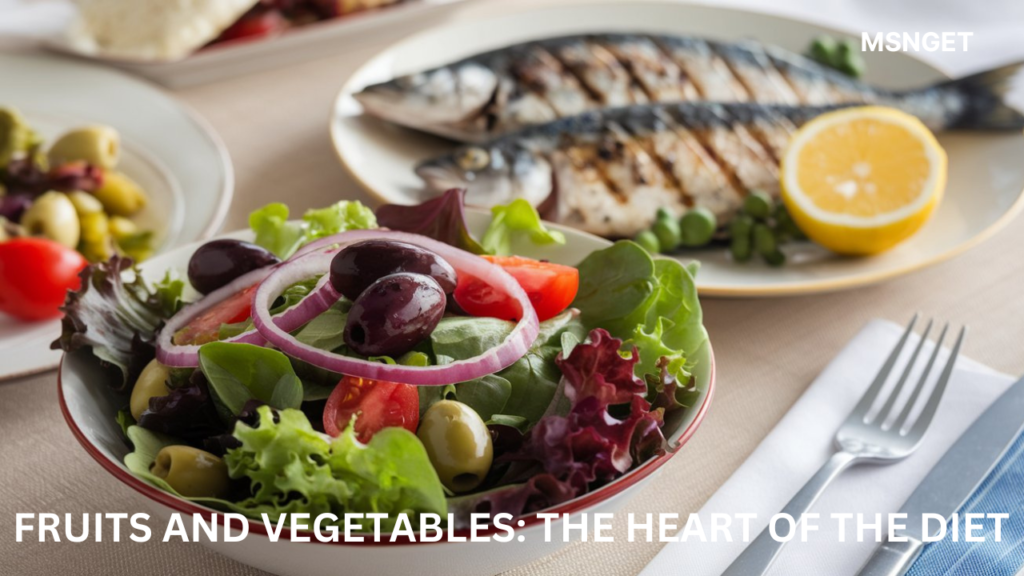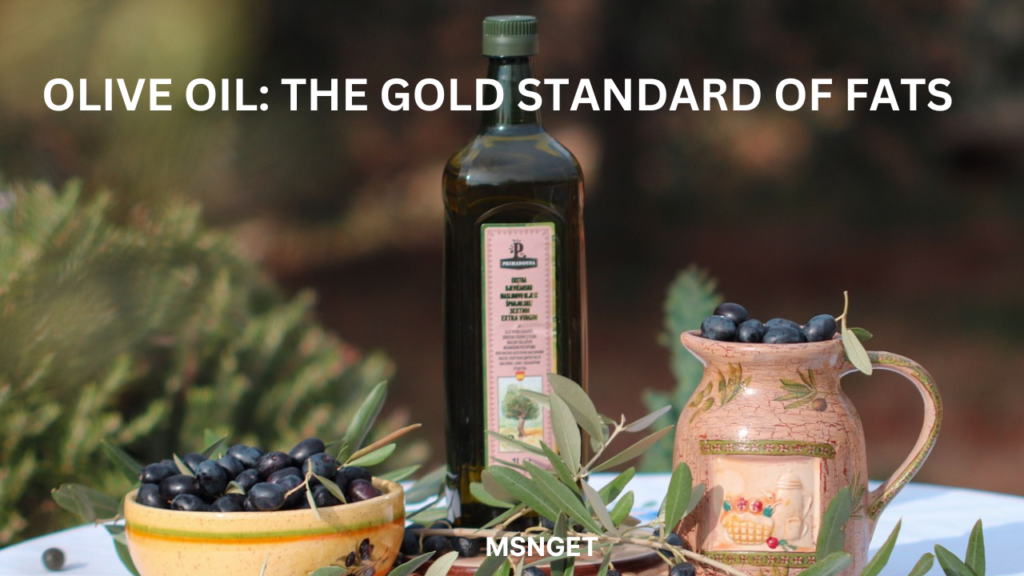

Mediterranean Diet
What Is the Mediterranean Diet?
The Mediterranean diet is a nutritional plan inspired by the traditional eating habits of people in countries bordering the Mediterranean Sea. These countries include Greece, Italy, Spain, and France. The diet is renowned for emphasizing fresh, unprocessed foods and healthy fats. It stands out as a holistic and balanced way of eating, linked to numerous health benefits. Its variety, flavor, and nutrition combination set it apart from other diets.
Core Components of the Mediterranean Diet
The Mediterranean diet’s foundation consists of plant-based foods. Fruits, vegetables, whole grains, legumes, nuts, and seeds are consumed in abundance. These foods provide essential nutrients such as vitamins, minerals, and antioxidants, promoting overall health. Unlike many other diets, it encourages the consumption of healthy fats, particularly olive oil. This provides additional heart-healthy benefits, so olive oil is a staple ingredient.
Fruits and Vegetables: The Heart of the Diet
One of the most significant components of the Mediterranean diet is the high intake of fruits and vegetables. These are consumed in large quantities, adding color and nutrients to every meal. They provide an array of vitamins, minerals, fiber, and antioxidants essential for fighting inflammation and promoting longevity. Fruits like oranges, apples, grapes, and vegetables such as spinach, tomatoes, and peppers are critical players in this eating pattern.

Whole Grains for Sustained Energy
Another key feature of the Mediterranean diet is the consumption of whole grains. Unlike refined grains, whole grains retain fiber and nutrients, making them healthier. Foods such as whole wheat bread, brown rice, and quinoa are rich in fiber, which supports digestive health and helps regulate blood sugar levels. By choosing whole grains over refined options, the Mediterranean diet aids in sustaining energy throughout the day.
Legumes for Plant-Based Protein
Legumes, including beans, lentils, and chickpeas, play a crucial role in the Mediterranean diet. They are excellent plant-based protein and fiber sources, promoting satiety and supporting muscle health. They are also low in fat and rich in complex carbohydrates, making them ideal for maintaining stable blood sugar levels. Legumes are often used in soups, salads, and main dishes, adding flavor and nutrition.
Also Read: Unlock Versatility with the ASUS 2-in-1 Q535: Your Ultimate
Nuts and Seeds for Healthy Fats
Nuts and seeds are another essential component of the Mediterranean diet. Almonds, walnuts, chia seeds, and sunflower seeds are consumed regularly. These are packed with healthy fats, protein, and fiber, making them ideal snacks or meal additions. They also contain antioxidants, which help protect the body against oxidative stress. By including these nutrient-dense foods, the Mediterranean diet ensures a balanced intake of healthy fats.
Olive Oil: The Gold Standard of Fats
The primary source of fat in the Mediterranean diet is olive oil. Unlike unhealthy trans fats in processed foods, olive oil is rich in monounsaturated fats, linked to improved heart health and reduced inflammation. Olive oil is generously used in cooking, salads, and dressings, providing flavor and nutritional value. It is the cornerstone of this diet’s healthy fat intake, distinguishing it from diets focusing on low-fat consumption.

The Importance of Fish in the Diet
The Mediterranean diet also emphasizes the consumption of fatty fish like salmon, sardines, and mackerel. These fish are rich in omega-3 fatty acids, which benefit heart health and brain function. Omega-3s have been shown to reduce inflammation, lower the risk of heart disease, and promote cognitive health. The Mediterranean diet supports cardiovascular well-being by including fish at least twice weekly.
Limited Red Meat and Processed Foods
One of the hallmarks of the Mediterranean diet is its limitation of red meat and processed foods. While some diets advocate eliminating these foods, the Mediterranean diet takes a more moderate approach. Red meat is consumed sparingly, and processed foods are avoided as much as possible. This helps reduce the intake of unhealthy fats, sodium, and artificial additives, contributing to better long-term health outcomes.
Moderate Alcohol Consumption
In contrast to many strict diets, the Mediterranean diet allows for moderate alcohol consumption, specifically red wine. Red wine is often enjoyed with meals, and in moderation, its polyphenol content may offer certain health benefits, such as improved heart health. However, moderation is vital, and excessive alcohol consumption is discouraged in this eating pattern.

Heart Health Benefits
One of the Mediterranean diet’s most well-known benefits is its positive impact on heart health. Studies have consistently shown that people who follow this diet have a lower risk of heart disease, stroke, and high blood pressure. The high intake of healthy fats, fruits, vegetables, and whole grains contributes to lower cholesterol levels and reduced inflammation, which are critical for maintaining a healthy heart.
Weight Management
The Mediterranean diet can also support weight management. Unlike restrictive diets that limit calorie intake, the Mediterranean approach focuses on eating nutrient-dense foods that promote satiety. The high fiber content from fruits, vegetables, legumes, and whole grains helps keep hunger at bay, making it easier to maintain a healthy weight without feeling deprived.

Improved Brain Health
Emerging research suggests that the Mediterranean diet also benefits brain health. Studies have shown that following this diet can reduce the risk of cognitive decline, dementia, and Alzheimer’s disease. Combining omega-3 fatty acids, antioxidants, and healthy fats protects brain cells and promotes overall cognitive function as people age.
Cancer Prevention
Another significant benefit of the Mediterranean diet is its potential role in cancer prevention. Studies have linked this dietary pattern to a reduced risk of certain types of cancer, including breast and colon cancer. The high intake of antioxidant-rich fruits and vegetables and the anti-inflammatory properties of olive oil and fish contribute to this protective effect.
Sustainability and Eco-Friendliness
The Mediterranean diet is beneficial for health and the environment. It emphasizes plant-based foods, which have a lower environmental impact than diets high in animal products. By focusing on locally sourced, seasonal ingredients, this diet supports sustainable farming practices, reduces carbon footprints, and promotes eco-friendly eating habits.
Cultural and Social Aspects
The Mediterranean diet goes beyond food choices—it is also a lifestyle. In Mediterranean countries, meals are often enjoyed with family and friends, emphasizing the social and cultural aspects of eating. This approach encourages mindful eating, where meals are savored and appreciated, contributing to better digestion and overall well-being.
Adaptability of the Diet
One reason the Mediterranean diet has gained widespread popularity is its adaptability. While the traditional diet reflects the culinary habits of Mediterranean countries, its principles can be applied anywhere. The focus on fresh, whole foods and healthy fats makes it easy for people to incorporate the diet into their lifestyle, regardless of location.
A Balanced and Sustainable Approach
Unlike fad diets that promise quick fixes, the Mediterranean diet is a sustainable approach to healthy eating. Its emphasis on balance and moderation ensures that people can follow it long-term without feeling restricted. The variety of foods allowed also means that meals are flavorful and satisfying, making it an enjoyable way to maintain a healthy lifestyle.
Conclusion
The Mediterranean diet is a well-rounded, nutritious eating pattern that promotes heart health, brain function, and overall well-being. Its emphasis on whole, unprocessed foods and healthy fats makes it one of the most effective diets for improving health and longevity. By adopting the principles of the Mediterranean diet, individuals can enjoy delicious, nutrient-rich meals while supporting both personal health and the environment.














